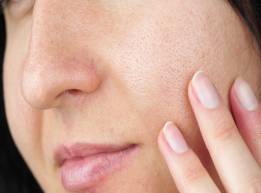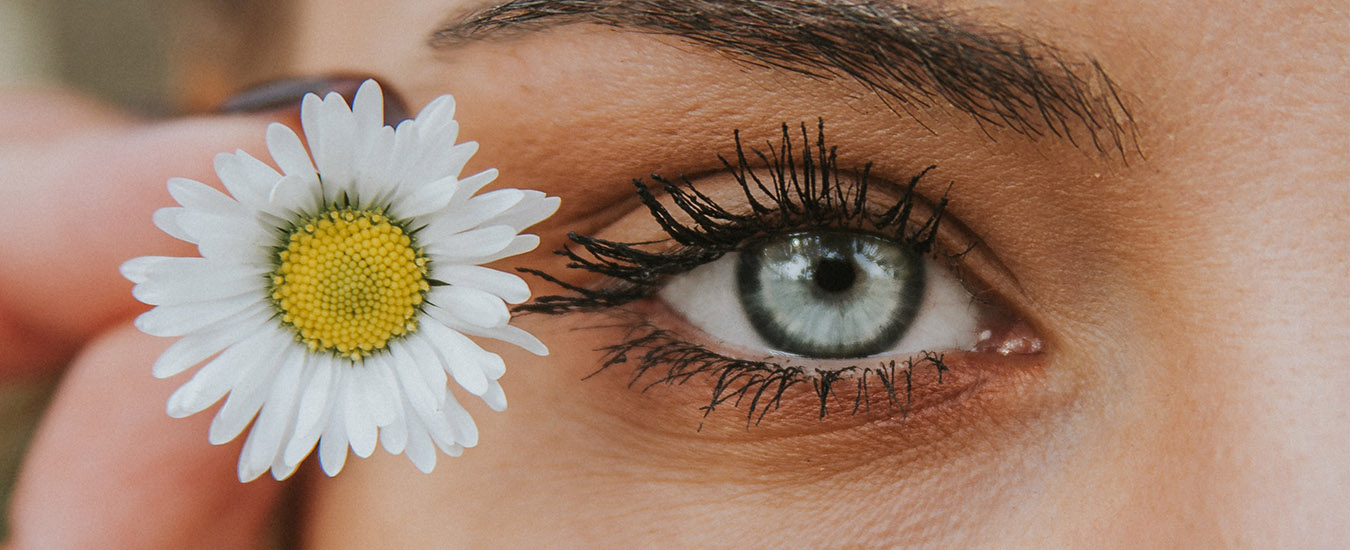Will Retinal Minimize Pores
Does Retinal Minimize Pores?
Retinal, Retinol and Retinoic Acid are Retinoids derived from Vitamin A. Retinol, a popularly used active in skincare products, is capable of fighting enlarged pores. Does that mean Retinal minimizes pores, too? Read to find out.
Which Vitamin A derivative is most effective to minimize pores?

Pores are small openings on your skin which release sweat and sebum. They help your skin breathe, keeping it healthy and moisturized. The normal size of your pore is genetically determined. It isn’t possible to get rid of your facial pores or reduce their sizes permanently. However, facial pores tend to appear bigger due to an increase in sebum production, ageing, sun damage and other environmental factors. If you do not follow a proper skincare routine, that would lead to dead skin cells piling up on your skin, stretching out the pores. It’s no news that enlarged pores make your face appear dull, unhealthy and old. A sufficiently cleansing and exfoliating skincare routine helps in minimizing the appearance of large and stubborn pores. Vitamin A is claimed to play a significant role in reducing the appearance of enlarged facial pores. Let’s find out more about Vitamin A!
Vitamin A, its derivatives & pore-minimizing benefits!
Vitamin A, a fat-soluble vitamin, is an essential nutrient that needs to be obtained externally for the healthy functioning of our body. It plays a crucial role in skin health, as it is the only molecule that is capable of reprogramming cells to promote skin renewal and boost skin elasticity. The vitamin also boosts collagen production to improve skin texture promoting a healthy youthful glow!
Your skin absorbs the retinoids of Vitamin A - Retinal, Retinol and Retinoic Acid, so as to tackle the majority of your skin-related issues. Among the Retinoids of Vitamin A, Retinoic Acid is the purest form of Retinoid, perfect for the skin to work with. However, Retinoic Acid isn’t fit for topical application, as it causes irritation on the skin. This is the reason why the precursors of Retinoic Acid, such as Retinol and Retinaldehyde, with low irritation profiles, are put to use for skincare purposes. [1]
A large number of skincare products are infused with Vitamin A, including daily moisturizers, sunscreens and serums. [5] In addition to reversing the damage caused by UV rays, minimizing fine lines and wrinkles, and removing dead skin cells, topical Vitamin A is extremely beneficial to shrink pores, too. Here’s how!
-
Encourages collagen and elastic fibre production, enabling your skin to reduce pore size.
-
Speeds up the normal skin cell turnover, accelerating skin regeneration, thereby reducing the appearance of enlarged pores.
-
Removes dead skin cells, oil and dirt clogging up the pores. Clean pores appear smaller.
Is Retinal better than Retinol to minimize pores?

Retinol and Retinal, the two derivatives of vitamin A, are the most sought-after ingredients in the current skincare scene. While both of them enable pore-minimizing, Retinal is often claimed to be the superior derivative for the job! Why? Firstly, Retinol after coming in contact with your skin has to get converted to Retinal and then Retinoic Acid to perform its functions. It is also unclear as to how much retinoid actually gets converted in the oxidation process. [3] The more conversion steps the Retinoid undergoes to reach the state to show its effect on the skin, the less potent it gets. Since the Retinal forms Retinoic Acid, in a single conversion process, it saves the efficacy of the Retinoid. A study in PubMed on natural topical retinoids also points out that retinaldehyde (RAL) has a good tolerance profile, in contrast to the irritating potential of Retinoic Acid. [1]
The size of the molecules sometimes makes it challenging for the skin to absorb these vitamin A derivatives. Research suggests that both the retinoids, Retinal and Retinoic Acid, are much more active than the others, which means using small quantities of the ingredient is enough to achieve desired results.
While there are harmless bacteria that live in your skin, some bacteria enter your skin through cuts and tears to cause skin infections of different kinds. A study in PubMed on natural topical retinoids establishes that Retinal has antibacterial properties unlike its parent natural retinoids to guard your skin against such infections. [1]
In addition to all of the mentioned advantages that prove the superiority of Retinal, the skin-transforming ingredient comes with lesser side effects as well. As Retinal unclogs pores, the chances of breakouts are also low.
The discussed characteristics of the relatively new cosmetic retinoid, Retinal, makes it evident that it has an upper hand over its rival and the long-established retinoid, Retinol.
References:
Fluhr, J W et al. “Tolerance profile of retinol, retinaldehyde and retinoic acid under maximized and long-term clinical conditions.” Dermatology (Basel, Switzerland) vol. 199 Suppl 1 (1999): 57-60. doi:10.1159/000051381
Benefits of Vitamin A For Skin According to an Expert | Be Beautiful India
What is Retinaldehyde and How Is It Used? | Evora Worldwide
Benefits of Vitamin A For Skin According to an Expert | Be Beautiful India
Pechère, M et al. “The antibacterial activity of topical retinoids: the case of retinaldehyde.” Dermatology (Basel, Switzerland) vol. 205,2 (2002): 153-8.doi:10.1159/000063903
Now no need to search for answers online anymore, We have got you covered! Call us at +91-8448407278 for online consultation with Expert at Meraki and get the solution of all your skin and hair concerns.

Dr. Neha Dubey
MD (Dermatology), Fellow I.A.D.V.L (Lasers & Aesthetic Dermatology)

Dr. Sneha Ghunawat
MD (Gold Medalist), DNB Fellow I.S.D Cosmetology and Aesthetics(Phillipines) Fellow Clinical Dermatology, NUH, Singapore





